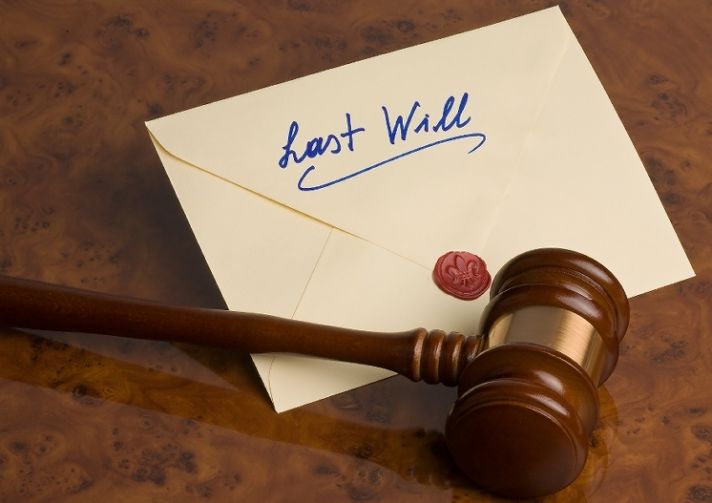Land claims backfire as courts rule against communities

13 Jun 2018
For everyone involved in or affected by land claims in SA, May 2018 must go down as one of the most disastrous months yet in the history of attempted restitution: in every one of the decisions by the Land Claims Court during that month those who brought cases to court lost out. Carmel Rickard, in her A Matter of Justice column on the Legalbrief website, takes a closer look at why claimants lost out.
———————–
MANY thousands of land claims are still unresolved, and they come very slowly to court. So it is a striking statistic that of the four cases in which judgment was given last month, the land claims court should, in all of them, find the claimants on the wrong side of the law.
The land claims court plays a crucial role in SA’s land reform initiative. It usually adjudicates disputes between landowners and people who claim they are entitled to have land returned to them after it was taken away under apartheid laws or even further back as a result of the Native Land Act of 1913.
The first case decided in May involves a community given compensatory land, who have grossly overstocked their new farm, ignoring the arrangement in terms of which they accepted to keep only as many animals as the land could support. The stock has been straying into neighbouring farms and highly sensitive eco-reserves, and the owners have now been ordered to remove the excess animals. If they fail to do so the animals will be impounded and sold.
The next case, that of Joseph Makubo and his family, was brought against farmer JS Uys, along with the Director General of the Department of Rural Development and Land Reform and the Lekwa local municipality. The Makubo family wanted an urgent hearing to have themselves declared ‘long-term occupiers’ of the farm and to interdict the farm owners from intimidating and assaulting them. They also wanted an order that their cattle should be allowed to access water ‘from the main river on the farm’. Makubo said he needed to access water from the ‘main river on the farm’ as the dam to which his cattle now have access might run dry. After an inspection of the property by all parties, however, it was agreed that the dam was ‘90 % full at the moment’. All parties also agreed that there was no ‘main river on the farm’. And despite wanting an interdict against threats of eviction and assaults, Makubo does not say that he or any other members of his family was ever assaulted by the farmer or his family.
There was further agreement by all the parties that, despite any claims, Makubo was not ‘a long term occupier’ of the land. In fact, said the judge ‘this is a matter which should not have seen the light of day’.
The third case was an application for leave to appeal against an earlier decision of the land claims court. Again, the original case involved a dispute that unravelled as the court dealt with it, at least partly because of the poor way in which the application had been put together.
Most serious of the problems in the original case was that the claimants, including Fifteen John Makhuva who chairs the royal council of the Mathebula tribal authority, did not list all the land to which they made claim. Instead they expected the court to do so. The claim by Makhuva caused considerable interest as it included sections of the Kruger National Park, but the land specified on the land claim form was not the same as the list of land included in the government gazette as under claim, while Makhuva’s affidavit mentions yet other areas that were claimed but not officially listed on his form.
The grounds on which Makhuva intended to appeal ‘gave the impression that (he) wanted the court to give its own interpretation to the claim form’, said the court. But it was not the court’s duty to interpret the form. Judge TM Ncube said the court was not allowed to ‘add property or land which is not claimed’. Nor may the regional land claims commission, while investigating the claim, add land which is not claimed. And it was not permissible for the applicants to submit a map showing land that was not claimed in the official claim form, but which according to the map, was claimed.
Given this background, all dealt with in the original decision, there was no reasonable prospect of success on appeal, said the judge.
The last decision of the month, given by the acting president of the Land Claims Court, Yasmin Meer, began by noting that this claim for restitution was made by ‘the Elambini community’, a group of people who no longer persisted in their individual claims, but now made their claim as ‘members of a community’. The land they claim involves about 30 coastal sugar farms on the KZN south coast and covers about 1 380 hectares.
It is the most complex of the four cases, and shows how the court would normally go about the task of judging the validity of a community’s claim to land, examining evidence of oral or written history for example. In this case, however, the court was particularly critical of the state because it had persisted in backing the community’s claim, even after the community’s own expert witness’s report disputed the validity of the claim. The court analysed the evidence of all the witnesses before finding that the claim could not be sustained, and ordered the state to pay the costs of the farmers involved in the matter because the farmers had had ‘substantial success’ against the state.
When the state read the expert’s report that very clearly did not support the community’s claim, it should have reported the contents of the report to the court, said the judge, and it should have conceded that ‘the claims were no longer considered valid or good, or with prospects of success’. Doing nothing except noting that it would ‘abide the decision of the court’ was ‘simply untenable’.
The court was, however, even more critical of the community. It had commissioned the report, but when it received the document the community complained about it because it ‘very clearly did not support (their) claim’. The community then tried to commission another expert report.
For some time, the community had even refused to give a copy of the report to the other side. ‘If any side was remiss, it was (the community),’ said the court. It was obliged to disclose the existence of the report but instead ‘blatantly prevented it from surfacing for some two years’. Relentlessly pursuing the claim in the face of the expert report that did not support the claim, incurred ‘considerable cost to the taxpayer’.
The community also rejected one settlement offer after another, despite all the efforts of the state and the landowners to broker a settlement. ‘They rejected the last offer of 100 hectares which the parties made known to the court, despite the court repeatedly warning (the community) of the risk of going away empty handed if they did not prove their case.’
(This article is provided for informational purposes only and not for the purpose of providing legal advice. For more information on the topic, please contact the author/s or the relevant provider.)





